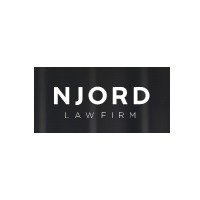Best Energy, Environment & ESG Lawyers in Denmark
Share your needs with us, get contacted by law firms.
Free. Takes 2 min.
Or refine your search by selecting a city:
List of the best lawyers in Denmark
About Energy, Environment & ESG Law in Denmark
Energy, Environment & ESG (Environmental, Social, and Governance) law in Denmark forms the foundation for how businesses and individuals interact with the environment and manage sustainability. Denmark is a global frontrunner in renewable energy, environmental protection, and responsible governance. The country's legal framework covers sectors including energy generation, climate change mitigation, environmental conservation, and social responsibility. Danish law is heavily influenced by European Union directives, as well as national and local regulations designed to support green transition and corporate responsibility.
Why You May Need a Lawyer
Legal issues in the Energy, Environment & ESG field can be complex. You may need legal assistance if you are considering:
- Starting or expanding an energy project, such as a wind farm or solar installation
- Dealing with environmental permits or compliance for your business
- Facing claims related to pollution, waste management, or contaminated sites
- Implementing ESG reporting for your company
- Navigating land use or zoning related to environmental considerations
- Understanding Denmark’s incentives and support schemes for renewable energy
- Managing legal risks arising from environment-based disputes
- Ensuring compliance with the EU Green Deal and other regulatory frameworks
- Responding to regulatory investigations or enforcement actions
- Drafting and negotiating contracts that involve ESG or environmental commitments
A lawyer with expertise in Energy, Environment & ESG can help you understand your obligations, avoid costly penalties, and ensure that your projects are both legally compliant and sustainable.
Local Laws Overview
The legal landscape for Energy, Environment & ESG in Denmark is shaped by several distinct laws and regulations:
- Energy Law: The Danish Energy Act regulates the production, supply, and consumption of energy with an emphasis on renewable sources. Denmark’s energy policy encourages the deployment of wind, solar, and bioenergy.
- Environmental Law: The Environmental Protection Act covers issues such as pollution, resource management, waste handling, and the conservation of nature. Environmental Impact Assessments (EIA) are often mandatory for major projects.
- ESG Regulations: Companies are increasingly required to report on sustainability, social initiatives, and governance practices. Non-financial reporting requirements now apply to many businesses under both Danish and EU legislation.
- EU Law Integration: Much of Danish legislation is harmonized with EU directives and regulations, such as the European Green Deal, Renewable Energy Directive, and the EU Taxonomy for sustainable activities.
- Permitting and Licensing: Projects that may impact the environment require permits from authorities, such as municipalities or the Danish Environmental Protection Agency (Miljøstyrelsen).
- Enforcement: Authorities have robust enforcement powers, including fines, injunctions, and in some cases, criminal charges for violation of environmental law.
Frequently Asked Questions
What types of energy projects are most common in Denmark?
Wind power is Denmark’s most prominent energy sector, but solar energy, biogas, and district heating projects are also common. Offshore wind farms are a key part of the country’s energy transition.
Do I need a permit for installing renewable energy systems?
Yes, most renewable energy projects, especially larger installations, require application for permits related to construction, grid connection, and land use. Approval from local authorities or the Danish Energy Agency may be needed.
How are companies in Denmark required to report on ESG matters?
Most large and medium-sized companies must prepare non-financial statements addressing environmental, social, and governance issues as part of their annual reports, in compliance with Danish law and EU directives.
What is the Environmental Impact Assessment (EIA) process?
The EIA is a legal requirement for certain projects likely to have significant environmental effects. It involves a detailed study of potential impacts, followed by public consultation and regulatory approval.
How are environmental violations enforced?
Authorities can investigate suspected violations, issue fines, require remediation, or halt activities. Serious breaches may result in criminal prosecution.
What support schemes exist for renewable energy developments?
Denmark offers various financial support schemes and incentives for renewable energy, such as feed-in tariffs and grants, especially for wind, solar, and bioenergy projects.
Is public participation required in environmental decision-making?
Yes, Danish and EU law mandate that the public is given the opportunity to participate in certain environmental planning and permit processes.
What is the role of the Danish Environmental Protection Agency?
The Agency (Miljøstyrelsen) oversees environmental regulation, issues permits, monitors compliance, and enforces laws related to pollution and environmental protection.
Can Danish environmental or ESG laws apply to foreign companies?
Yes, if a foreign company operates in Denmark or carries out activities that impact the Danish environment, it must comply with local regulations and ESG reporting requirements.
How can businesses stay up to date with legal developments?
Regularly consulting legal advisors, following guidance from relevant authorities, and monitoring updates from industry associations can help businesses stay compliant with changing requirements.
Additional Resources
Several organizations and authorities provide guidance and support related to energy, environment, and ESG matters in Denmark:
- Danish Energy Agency (Energistyrelsen) - Provides information on energy policy, renewable energy support programs, and regulatory requirements.
- Danish Environmental Protection Agency (Miljøstyrelsen) - Handles environmental regulations, permits, and compliance monitoring.
- Danish Business Authority (Erhvervsstyrelsen) - Offers guidance on ESG reporting obligations and best practices for companies.
- Ministry of Climate, Energy and Utilities (Klima-, Energi- og Forsyningsministeriet) - Sets overall policy and regulatory direction.
- Industry associations such as Wind Denmark or Dansk Industri - Can provide practical advice for businesses in the energy and environmental sectors.
Next Steps
If you are seeking legal advice or assistance regarding Energy, Environment & ESG in Denmark, consider taking the following steps:
- Define your issue or project scope clearly and gather any relevant documentation, such as contracts, permits, or correspondence with authorities.
- Identify potential legal requirements, permits, or reporting obligations associated with your activities.
- Consult with a specialized lawyer or legal advisor with experience in Danish energy, environmental, and ESG regulations. They can assess your situation and help you navigate local requirements.
- Stay informed by following updates from the relevant Danish agencies and industry bodies mentioned in the Additional Resources section.
- Proactively address compliance matters to avoid enforcement actions or delays in your projects.
Effective legal advice can help you minimize risks, maximize opportunities, and ensure that your operations or projects align with both Danish law and international ESG standards.
Lawzana helps you find the best lawyers and law firms in Denmark through a curated and pre-screened list of qualified legal professionals. Our platform offers rankings and detailed profiles of attorneys and law firms, allowing you to compare based on practice areas, including Energy, Environment & ESG, experience, and client feedback.
Each profile includes a description of the firm's areas of practice, client reviews, team members and partners, year of establishment, spoken languages, office locations, contact information, social media presence, and any published articles or resources. Most firms on our platform speak English and are experienced in both local and international legal matters.
Get a quote from top-rated law firms in Denmark — quickly, securely, and without unnecessary hassle.
Disclaimer:
The information provided on this page is for general informational purposes only and does not constitute legal advice. While we strive to ensure the accuracy and relevance of the content, legal information may change over time, and interpretations of the law can vary. You should always consult with a qualified legal professional for advice specific to your situation.
We disclaim all liability for actions taken or not taken based on the content of this page. If you believe any information is incorrect or outdated, please contact us, and we will review and update it where appropriate.
Browse energy, environment & esg law firms by service in Denmark
Denmark Attorneys in related practice areas.
Browse energy, environment & esg law firms by city in Denmark
Refine your search by selecting a city.
















